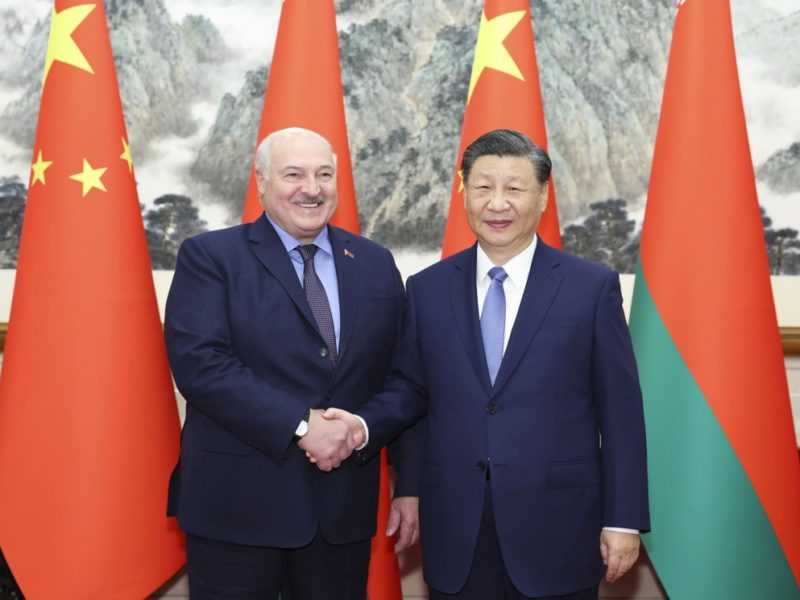China’s “Going Global Strategy,” launched in 1999 to encourage Chinese investment abroad, has boosted Chinese overseas investment and lending. Since then, China has become one of the country’s largest creditors. China began allocating nominal sums for grant assistance. However, in 2016, China emerged as one of the largest donors to international development assistance, accepting the part of grant-based foreign aid engagement with developing countries. China’s lending abroad policy typically involves relatively high interest rates and short maturities, in contrast to the mostly concessional lending terms of other official lenders such as the World Bank, IMF or OECD governments. For the 50 most indebted recipients (located in low- and middle-income economies) of Chinese direct lending, the average stock of debt owed to China has increased from less than 1% of GDP in 2005 to more than 15% of debtor country GDP in 2017. For these countries, debt to China now accounts to 40% of external debt, on average.
China is pursuing “debt-trap diplomacy,” which involves luring poor, developing nations into agreeing on unsustainable loans to follow infrastructure projects. When they face financial difficulties, Beijing can seize the asset, thereby expanding its strategic or military reach. China lends money to countries, which must surrender control of vital assets if they cannot repay their debts. Sri Lanka is a good example of debt-trap, having taken significant credit for a large port project in Hambantota with Chinese investment years ago. In July 2017, Sri Lankan government and CMPort entered into a lease agreement, which saw the port leased for $1.1 billion, which Sri Lanka used to pay down other debts and increase foreign reserves. In exchange for debt relief, China offered to help. No right of the port was transferred, and no debts were forgiven. Colombo was provided with liquidity to repay Western creditors; the obligation to China remained the same as reported by Chatham House.
The researchers at AidData research lab developed a global dataset on China’s official development spending from 2000 to 2014. It has identified more than $350 billion in Chinese foreign aid and other forms of state financing through a thorough search of official public sources and verified by media and other additional sources. In official debt statistics, half of China’s lending to developing countries is not recorded (hidden debts). It is frequently kept off government balance sheets, rather than going directly from the government to the government, and directed to state-owned businesses and banks, joint ventures, or private institutions. Sebastian Horn, Carmen M. Reinhart, Christoph Trebesch at the US National Bureau of Economic Research went further and developed dataset spanning from 1949 until 2017, and covers a total of 1,974 Chinese loans and 2,947 Chinese grants to 152 emerging or developing countries, with total commitments of 520 billion US$. The Chinese loan projects do usually share some key characteristics:
1) All Chinese lenders’ contracts, including the debt itself, especially from Eximbank contain confidentiality clauses that prevent borrowers from disclosing their contents;
(2) A typical “No Paris Club” clause is present in the Chinese contract sample and are found in 43% of China Development Bank and 81% of Exim bank projects contracts;
(3) Collateral or security clauses to ensure that the lender has cash available in the event of default. Security arrangements are used in 75% of China Development Bank’s and 22% of Exim Bank’s contracts, whereas only 7% of OECD bilateral creditors and 1% of multilateral creditors set do so.
(4) Escrow or special accounts are used to secure repayment and are used by Chinese state-owned banks; Throughout the life of the loan, sovereign borrowers agree to maintain and fund bank accounts at the lending institution or at a bank “acceptable to the lender,” as well as route project revenues and cash flows through these accounts that are unrelated to the project funded by the loan; (5) Cross-default clauses are present in 100% of China Development Bank’s and Exim Bank contracts, “When the debtor defaults on its obligation to Creditor B, a cross-default clause allows Creditor A to pressure the debtor and protect its claim priority. If the debtor misses a payment to B, both A and B would have the ability to demand entire loan and accumulated interest repayment at the same time under a creditor-friendly version of the clause. A creditor may retain the right to cancel the loan and demand immediate repayment under various circumstances, including political and economic developments not directly connected to the lending relationship. Once the contracts are signed, the debtor’s exit options are very limited”.
After the Central Asian republics gained independence in 1991, the countries began to diversifying their infrastructure-based project by receiving grants and loans and external debts from international financial institutions as well as China; Each country of the Central Asian region total external debt had risen, making China the largest creditor in Asia: for example, Kyrgyzstan – 1.7 billion (40% of the total); Tajikistan – 1.2 billion (48 per cent of the total); Why is it easier and faster to get credit from China? A former president of Kazakhstan said: “China doesn’t dictate how we should live compared to Western creditors? What structural changes must be made before the Chinese credit becomes available? We will help you to become like us, China”.
However, China does impose some conditions on Central Asian countries: the recipient nations should only use Chinese equipment types, and labor for infrastructure projects should also come from China. Conditionalities work and they provide Chinese banks and companies such as Tebian Electric Apparatus (TBEA), China Road and Bridge Corporation (CRBC), China National Petroleum Corporation (CNPC) and others with access to Central Asian natural resources. One China policy means the recipient nation must recognize mainland China as the only legitimate Chinese government, and the recipients also cannot have official relations with Taiwan. In addition to one-China policy, Beijing expects recipient countries to refuse supporting the Uygur cause, collaborate in the extraditing the dissidents, and possibly expects support for China at the UN Security Council, as reported by Sherzod Shamiev.
Kyrgyzstan and Tajikistan (including Djibouti; Laos, Maldives; Mongolia, Montenegro; Pakistan) were all identified as highly indebted countries and unsustainable with possibility of falling into a debt-trap in a report in 2018 by the Centre for Global Development, meanwhile in top 5 countries located in a worst debt situation, Kyrgyzstan is enlisted (along with Djibouti, Tongo, Maldives, Congo). Export and Import Bank of China is the country’s largest single creditor, with reported loans totaling $1.5 billion by the end of 2016, or roughly 40% of the country’s total external debt. Kyrgyz and Chinese authorities are discussing the construction of a hydropower plant network, a China-Kyrgyzstan-Uzbekistan railway system, additional highway development, and the completion of the Central Asia-China gas pipeline. Risk of debt distress, Kyrgyzstan is still vulnerable to shocks due to a significant exchange rate depreciation, which is compounded by the scaling up of public investments.
Tajikistan is one of the poorest countries in Asia, and the IMF and World Bank have classified it as having a “high risk” of debt distress. The total foreign debt of the country is 3.2 billion US dollars which is 38.2% of Gross Domestic Product. Sputnik Tajikistan reports that it is coming to the critical point – 40% is defined in the country Strategy in Public Debt Management. Meanwhile, in a joint IMF/World Bank Debt Sustainability Analysis A public debt-to-GDP ratio above 25 per cent of GDP is considered. in 2006 China didn’t plan in Tajikistan debt structure, however by 2016 the country had borrowed more than US$1.1 billion from China. Tajikistan still plans to increase its external debt at concessional and non-concessional rates to fund infrastructure investments in the power and transportation sectors, including those supporting BRI. The single largest creditor in Tajikistan, China, accounts for nearly 80 percent of the total increase in Tajikistan’s external debt. Tajikistan in return for constructing phase one of Dushanbe coal plant granted TBEA rights to explore and mine gold deposits at the Eastern Duoba mine and Upper Kumarg mine. Tajikistan has swapped its natural resources to complete an initial phase of the coal plant, thus opening a risky dynamic of funding infrastructure projects by giving away licenses to mine precious metals.

Umedjon Majidi – Author of the blog series, Expert/Research Consultant, Civic IDEA




